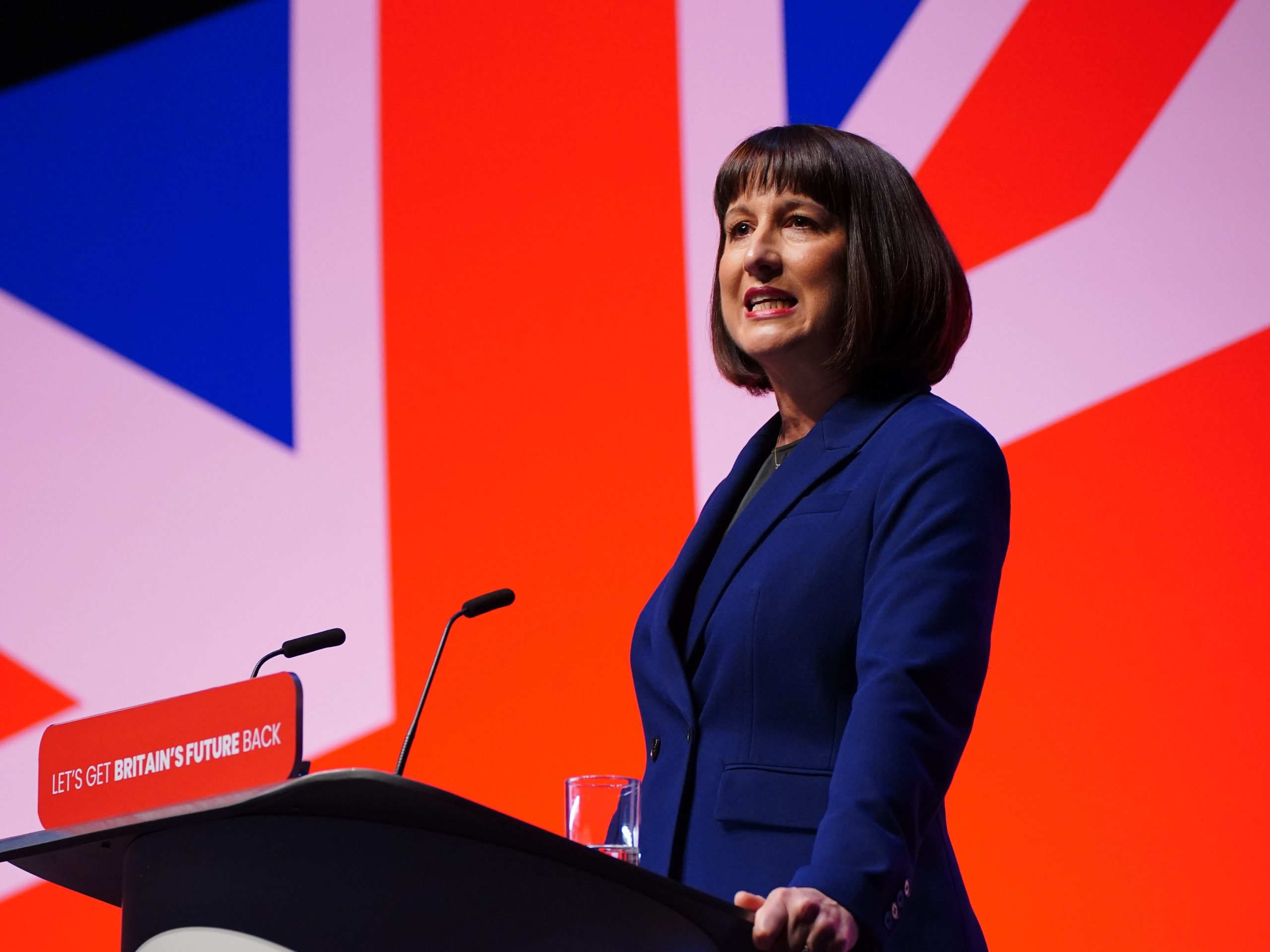In her address to business and finance leaders, Rachel Reeves, the shadow chancellor, outlined Labour’s vision for ushering in “a new chapter in Britain’s economic history.” The speech, delivered as the prestigious Mais lecture in the City of London, marked a significant moment for Labour as it sought to articulate its economic policies and strategies.
Reeves emphasized the need for fundamental reforms within the Treasury and proposed measures to foster long-term economic growth in the UK. Central to her agenda is “securonomics,” which entails a recalibration of the balance between market forces and state intervention, emphasizing the latter more.

Rachel Reeves Giving Speech (Credits: The Independent)
According to Reeves, securonomics represents a departure from the laissez-faire approach of the past, recognizing the limitations of relying solely on market mechanisms to address economic challenges. Instead, it advocates for a more proactive role for the state in steering the economy and mitigating negative externalities.
The proposed reforms outlined by Reeves encompass various aspects of economic policy, including borrowing controls, interest rate setting by the Bank of England, and developing a new industrial strategy.
These measures are intended to rebalance power dynamics between the government and market forces to promote stability, sustainability, and inclusive growth.
Reeves’ emphasis on economics reflects a broader shift in economic thinking. Policymakers increasingly recognize the need for a more interventionist approach to addressing contemporary economic realities.
Labor seeks to address longstanding challenges such as inequality, regional disparities, and environmental sustainability by advocating for a more hands-on role for the state.

Rachel Reeves (Credits: X)
Reeves’ proposals have sparked debate and scrutiny, with critics questioning the feasibility and effectiveness of a more interventionist economic agenda. Skeptics argue that increased state intervention could stifle innovation, dampen entrepreneurial spirit, and undermine market efficiency.
Despite these concerns, Reeves remains steadfast in her commitment to securonomics, portraying it as a pragmatic response to modern economies’ complex challenges. As Labour continues to refine and articulate its economic platform, the debate over the role of the state in shaping economic outcomes is likely to remain central to the political discourse in the UK.























